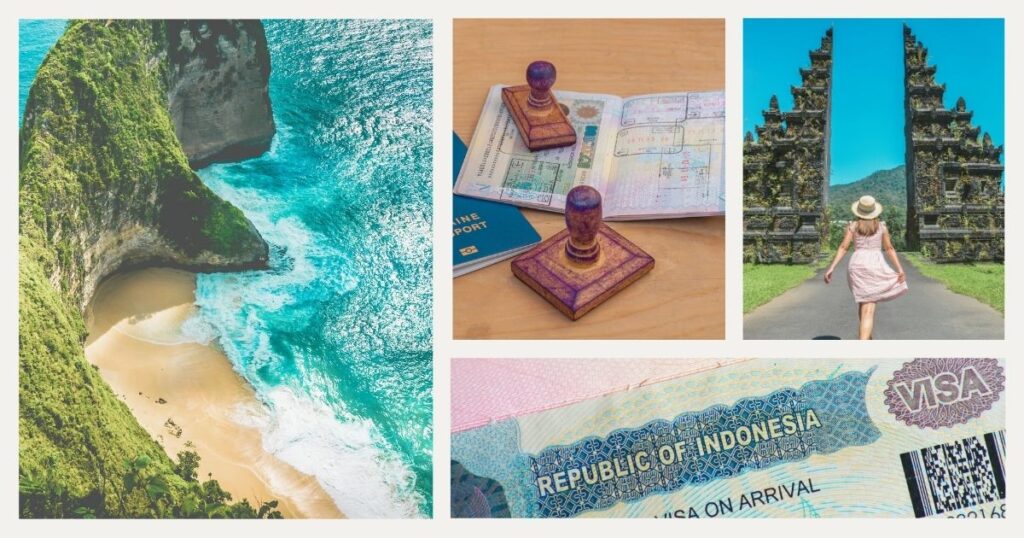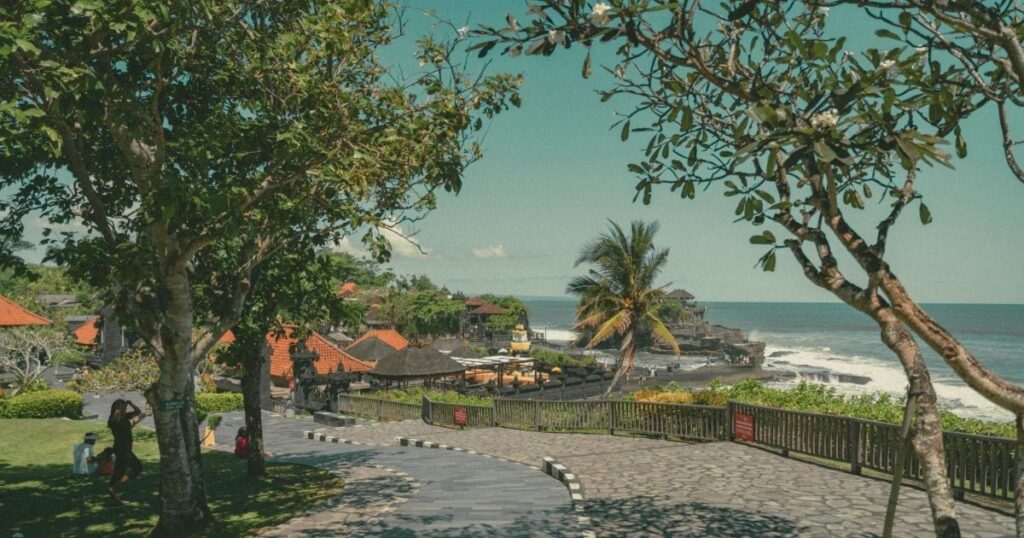The dream of living in Bali has captured the imagination of digital nomads, expats, and remote workers worldwide. This Indonesian paradise offers an unbeatable combination of tropical beauty, affordable living costs, rich cultural experiences, and a thriving international community. But successfully transitioning to living in Bali requires understanding the practical realities behind the postcard-perfect images.
From navigating Indonesia’s complex visa requirements to understanding local customs and managing day-to-day expenses, living in Bali presents both incredible opportunities and unique challenges. The island has evolved into a global hub for remote workers, offering world-class coworking spaces, reliable internet infrastructure, and a supportive expat community that makes integration easier for newcomers.
This comprehensive guide covers everything you need to know about making Bali your home, whether you’re planning a short-term digital nomad experience or considering a permanent relocation to this tropical paradise.
Visa requirements and legal considerations for living in Bali

Understanding visa requirements forms the foundation of successfully living in Bali long-term. Indonesia offers several visa options depending on your purpose, duration of stay, and personal circumstances, each with specific benefits and limitations.
Tourist and short-term visa options
For initial stays and trial periods, most foreigners start with tourist visas before transitioning to longer-term options. The Visa on Arrival (VOA) allows stays up to 30 days with one possible extension for another 30 days, costing approximately $35 USD.
The B211A Social-Cultural Visa provides more flexibility for those testing the waters of living in Bali. Initially valid for 60 days, this visa can be extended multiple times up to 180 days total, making it popular among digital nomads exploring longer stays.
Essential Requirements for Tourist Visas:
- Passport valid for at least 6 months
- Proof of onward travel or a return ticket
- Tourist levy of approximately $15 USD (introduced in 2024)
- SATUSEHAT Health Pass (free online declaration)
🌟 Pro tip: apply for the e-VOA online before arrival to skip airport queues and expedite your entry process, especially during peak tourist seasons.
Long-term residence options
For those committed to living in Bali permanently, the KITAS (Kartu Izin Tinggal Terbatas) provides the most comprehensive solution. This residence permit suits investors, retirees over 55, spouses of Indonesian citizens, and employees of Indonesian companies.
The emerging Digital Nomad Visa (Second Home Visa) represents Indonesia’s newest initiative for attracting remote workers. While still in development, this program promises up to 5-year stays with tax exemptions on foreign-earned income.
💡 Did you know? Indonesia’s digital nomad visa requires demonstrating a minimum bank balance of approximately $150,000 and comprehensive health insurance, reflecting the government’s focus on attracting financially stable remote workers.
Cost of living: budgeting for life in Bali

One of the most attractive aspects of living in Bali is the significantly lower cost of living compared to Western countries. However, expenses vary dramatically based on lifestyle choices, location preferences, and how closely you embrace local versus Western amenities.
Accommodation and housing costs
Housing represents the largest expense category when living in Bali, with costs varying significantly between different areas and accommodation types. Popular expat areas like Canggu and Seminyak command premium prices, while more local neighborhoods offer substantial savings.
Monthly rental ranges by area
- Canggu/Seminyak: $800-1,500 for one-bedroom villas
- Ubud: $600-1,200 for similar accommodations
- Sanur: $500-1,000 for family-friendly options
- Local neighborhoods: $300-600 for basic but comfortable living
Housing options for different budgets
- Guesthouses/Co-living: $250-400 per month for shared facilities
- Private apartments: $500-800 for modest independence
- Luxury villas: $1,500-3,000+ for premium lifestyle
Long-term rentals often provide better value than short-term options, and many landlords offer discounts for 6-12 month commitments. When living in Bali, consider that most rentals include basic furnishings and utilities, though high-end properties may charge separately for electricity and maintenance.
Daily living expenses
Food costs when living in Bali range from incredibly affordable to moderately expensive, depending on dining preferences. Local warungs serve authentic meals for $1-3, while Western restaurants command higher prices.
Monthly budget estimates
- Local cuisine focus: $150-250
- Mixed local/international: $300-500
- Western food preference: $500-800
Other essential costs
- Scooter rental: $50-100 per month
- Utilities (electricity/water): $50-200
- Internet: $20-50 for high-speed connections
Staying connected while living in Bali becomes crucial for work and communication. Consider reliable connectivity solutions like Holafly’s data packages for seamless internet access across Indonesia.
🌟 Pro tip: budget $1,500-2,500 per month for a comfortable lifestyle when living in Bali as a single person, with couples able to share accommodation costs for overall savings.
Lifestyle and cultural integration

Successfully living in Bali extends far beyond managing visas and budgets—it requires cultural sensitivity, community integration, and adapting to local customs while maintaining your professional responsibilities.
Understanding Balinese culture and customs
Bali’s unique Hindu culture distinguishes it from the rest of predominantly Muslim Indonesia. When living in Bali, respecting local customs enhances your experience and builds positive relationships with the community.
Essential cultural considerations
- Dress modestly when visiting temples
- Respect daily religious ceremonies and processions
- Learn basic Indonesian/Balinese greetings and phrases
- Understand the spiritual nature of daily life
Religious celebrations like Nyepi (Day of Silence) and frequent temple ceremonies become part of your yearly rhythm, offering incredible cultural experiences while occasionally affecting business operations.
Building community and professional networks
The international community living in Bali has created extensive networks supporting newcomers, entrepreneurs, and remote workers. Digital nomad hubs in areas like Canggu and Ubud offer regular meetups, networking events, and co-working opportunities.
Community integration strategies
- Join digital nomad Facebook groups and WhatsApp communities
- Attend regular meetups and networking events
- Participate in beach cleanups and community service projects
- Learn Indonesian through local language exchanges
Professional networking
- Utilize co-working spaces for business connections
- Attend startup and entrepreneur events
- Join industry-specific groups (tech, marketing, wellness)
- Connect with local business communities
💡 Did you know? Bali hosts numerous international conferences and festivals throughout the year, providing excellent networking opportunities for professionals living in Bali across various industries.
Practical considerations and work opportunities

Managing daily life while living in Bali requires understanding local systems and exploring work possibilities within Indonesian regulations.
Healthcare, banking, and infrastructure
Healthcare quality varies between tourist areas and remote regions. International hospitals like BIMC and Siloam provide excellent care with English-speaking staff, while rural areas offer basic facilities.
Essential services
- International hospital consultations: $50-200
- Comprehensive health insurance: $50-200 monthly
- Local bank accounts require a KITAS for most institutions
- Fiber optic internet is available in major areas (50-300 Mbps)
Health and safety considerations
- Rabies risk from stray dogs requires immediate treatment
- Dengue fever prevention through mosquito control
- Food safety awareness to prevent “Bali belly”
🌟 Pro tip: maintain banking relationships in your home country while living in Bali to ensure easy access to international financial services.
Digital nomad and business opportunities
Bali’s infrastructure makes it ideal for digital nomads and remote workers. The island offers numerous co-working spaces, reliable internet, and a supportive international community.
Popular remote work categories
- Digital marketing and social media management
- Web development and software engineering
- Content creation and freelance writing
- Online coaching and consultation services
Major areas like Canggu, Ubud, and Seminyak host world-class co-working spaces, including Dojo Bali and The Outpost, offering professional environments with networking opportunities.
💡 Did you know? Bali hosts numerous international conferences and festivals throughout the year, providing excellent networking opportunities for professionals living in Bali across various industries.
Choosing the right area for your lifestyle

Different regions of Bali offer distinct experiences, costs, and communities, making location choice crucial for successful long-term living in Bali.
Popular expat areas and their characteristics
- Canggu: the epicenter of digital nomad culture, offering excellent co-working spaces, vibrant nightlife, and a strong international community. Higher costs but maximum networking opportunities.
- Ubud: cultural heart of Bali, perfect for those seeking spirituality, wellness, and nature. Popular with creative professionals and wellness practitioners.
- Seminyak: upscale beach town with luxury amenities, fine dining, and sophisticated nightlife. Higher living costs but proximity to international-standard services.
- Sanur: family-friendly area with calm beaches, lower costs, and a more traditional Indonesian atmosphere. Popular with retirees and families.
- Uluwatu: emerging area popular with surfers and professionals seeking a more relaxed, nature-focused lifestyle away from tourist crowds.
💡 Did you know? Each area of Bali maintains distinct communities and price points, with some digital nomads choosing to move between areas seasonally to experience different aspects of living in Bali.
Final thoughts about living in Bali
Living in Bali offers an extraordinary opportunity to experience a unique blend of tropical paradise, cultural richness, and modern amenities at affordable costs. However, success requires careful planning, cultural sensitivity, and realistic expectations about both the benefits and challenges of expat life.
The key to thriving while living in Bali lies in embracing the local culture while maintaining your professional goals, building meaningful relationships within both expat and local communities, and adapting to infrastructure and systems that operate differently from Western standards. The reward is an incredibly fulfilling lifestyle that combines professional opportunities with personal growth in one of the world’s most beautiful settings.
Whether you’re planning a short-term digital nomad experience or considering permanent relocation, Bali continues to evolve as a global hub for remote workers and international residents. For comprehensive guidance on optimizing your nomadic lifestyle, including accommodation strategies and community integration, explore our detailed resources on accommodation for digital nomads to ensure you find the perfect living situation for your Bali adventure.
Nomadaprovides expert insights to help you navigate every aspect of international living with confidence and success 👉
Frequently asked questions about living in Bali
For stays longer than 60 days, you’ll need either a B211A Social-Cultural Visa (extendable up to 180 days) or a KITAS residence permit for permanent living. Tourist visas only allow 30-60 days maximum and aren’t suitable for long-term residence.
A comfortable lifestyle costs $1,500-2,500 per month for a single person, including accommodation, food, transportation, and leisure activities. Budget-conscious individuals can live on $1,000-1,500, while luxury lifestyles may cost $3,000+ monthly.
No, tourist visas don’t permit working in Indonesia. Digital nomads working for foreign companies exist in a legal gray area, while local employment requires proper work permits through KITAS visas and Indonesian company sponsorship.
Yes, Bali is generally very safe for long-term foreign residents. The main concerns are traffic safety (especially motorbikes), petty theft in tourist areas, and natural disasters like volcanic activity. Most expats report feeling very secure in their daily lives.
Canggu offers the strongest digital nomad community and networking opportunities, Ubud provides cultural immersion and wellness focus, while Seminyak offers upscale amenities. Sanur works well for families, and Uluwatu appeals to those seeking a quieter beach lifestyle.
While not essential in tourist areas where English is widely spoken, learning basic Indonesian significantly enhances your experience and helps with daily tasks like shopping, transportation, and building relationships with local communities.




